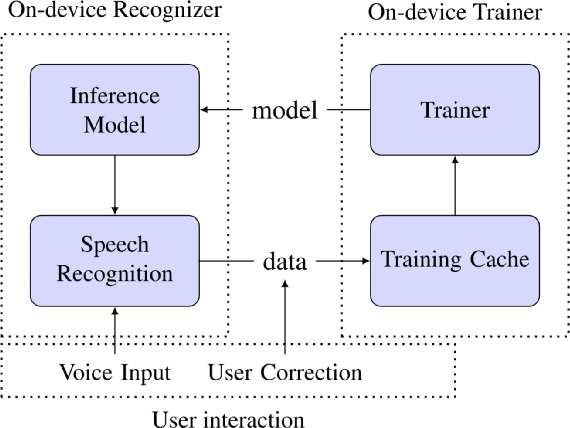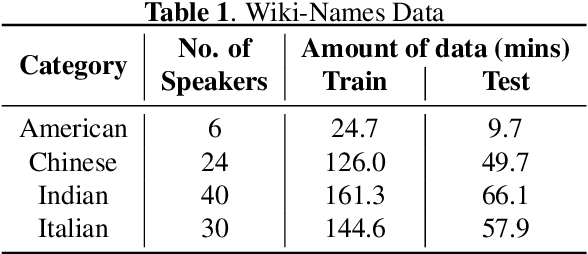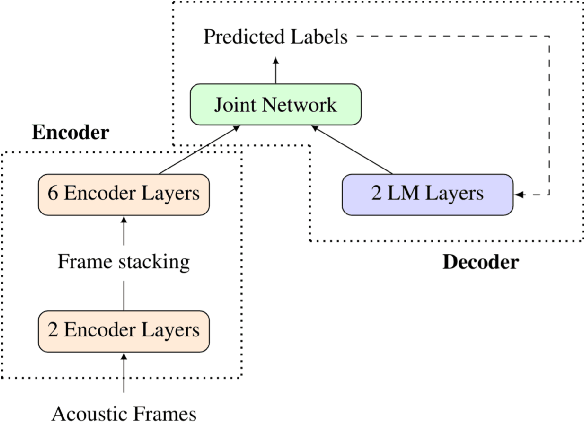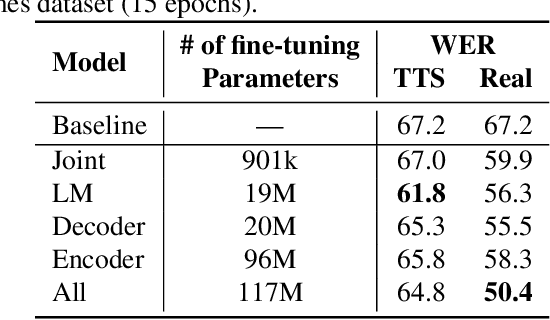Tamar Lucassen
Personalization of End-to-end Speech Recognition On Mobile Devices For Named Entities
Dec 14, 2019



Abstract:We study the effectiveness of several techniques to personalize end-to-end speech models and improve the recognition of proper names relevant to the user. These techniques differ in the amounts of user effort required to provide supervision, and are evaluated on how they impact speech recognition performance. We propose using keyword-dependent precision and recall metrics to measure vocabulary acquisition performance. We evaluate the algorithms on a dataset that we designed to contain names of persons that are difficult to recognize. Therefore, the baseline recall rate for proper names in this dataset is very low: 2.4%. A data synthesis approach we developed brings it to 48.6%, with no need for speech input from the user. With speech input, if the user corrects only the names, the name recall rate improves to 64.4%. If the user corrects all the recognition errors, we achieve the best recall of 73.5%. To eliminate the need to upload user data and store personalized models on a server, we focus on performing the entire personalization workflow on a mobile device.
Writing Across the World's Languages: Deep Internationalization for Gboard, the Google Keyboard
Dec 03, 2019Abstract:This technical report describes our deep internationalization program for Gboard, the Google Keyboard. Today, Gboard supports 900+ language varieties across 70+ writing systems, and this report describes how and why we have been adding support for hundreds of language varieties from around the globe. Many languages of the world are increasingly used in writing on an everyday basis, and we describe the trends we see. We cover technological and logistical challenges in scaling up a language technology product like Gboard to hundreds of language varieties, and describe how we built systems and processes to operate at scale. Finally, we summarize the key take-aways from user studies we ran with speakers of hundreds of languages from around the world.
 Add to Chrome
Add to Chrome Add to Firefox
Add to Firefox Add to Edge
Add to Edge